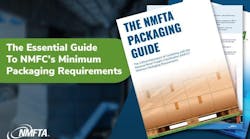The U.S. House passed by a vote of 217-212 the Jobs for Main Street Act of 2010 (H.R. 2847). The bill, touted by the Obama Administration as vital to helping the country revitalize the economy, includes $39 billion for programs related to transportation and infrastructure, including $27.5 billion for highways alone.
In all, the bill, which no Republicans voted for, authorizes a number of economic initiatives in a $154 billion spending plan. It still must be approved by the Senate, which is not expected to consider it until after a holiday recess.
“There are 7,886 highway and transit projects that are underway, thanks to the Recovery Act [that] have created or sustained more than 210,000 direct, on-project jobs with payrolls exceeding $1.1 billion,” Rep. James L. Oberstar (D-MN.), chairman of the Transportation and Infrastructure Committee, said in his speech last night to House members in support of the measure. “When we add indirect and induced jobs, the number climbs to nearly 630,000. The Main Street Jobs program will continue this success and sustain the recovery into this coming year.”
The bill includes an extension of the Surface Transportation Extension Act of 2009, which is the patch that was put in place at the end of September to continue funding the long-term highway authorization bill, SAFETEA-LU, more commonly known as the highway reauthorization bill. That program would be funded with $53.5 billion until September 2010, allowing the government time to craft new long-term legislation.
That long-term legislation, though, has been the subject of much debate in Congress. While Oberstar’s office has been pushing passage of a new bill, the Obama Administration prefers a wait-and-see approach to draw up a proposal. Its plan was an 18-month funding measure before redoing the bill in 2011. The Senate’s Environment and Public Works Committee approved an 18-month extension of federal highway programs back in July that would push out reauthorization efforts out until at least March 2011.
During a summer press conference, Oberstar opposed that idea. “Delay is unacceptable,” he said at the time. “Delay casts uncertainty on the program. If we delay the new authorization, states will hold back on new projects and that will cost jobs. We are not in the business of delay. It is time to move ahead.”
According to Bloomberg News, 40 Democrats voted against the bill last night, suggesting passage in the Senate is questionable. New York Rep. Michael Arcuri, who opposed the bill because it would add to the national debt, said he doubted the Senate would “do anything” with the bill.
President Barack Obama praised the bill’s passage.
“All over the country this holiday season, Americans who lost their jobs in the Great Recession are looking for work. Today the House answered with some productive ideas to respond to this great need,” Obama said in a statement following the passage of the bill.
Also included in the Jobs bill is a provision to stabilize the Highway Trust Fund, restoring $19.5 billion in interest payments and lifting the ban on the Fund receiving interest payments in the future. According to figures provided by the Transportation and Infrastructure committee, these changes will result in an increase in nearly $1 billion a year in the Fund’s balance.
Increasing the balance another $1.7 billion a year is a provision that calls for the General Fund to support fuel tax exemptions, such as those provided to state and local governments.


